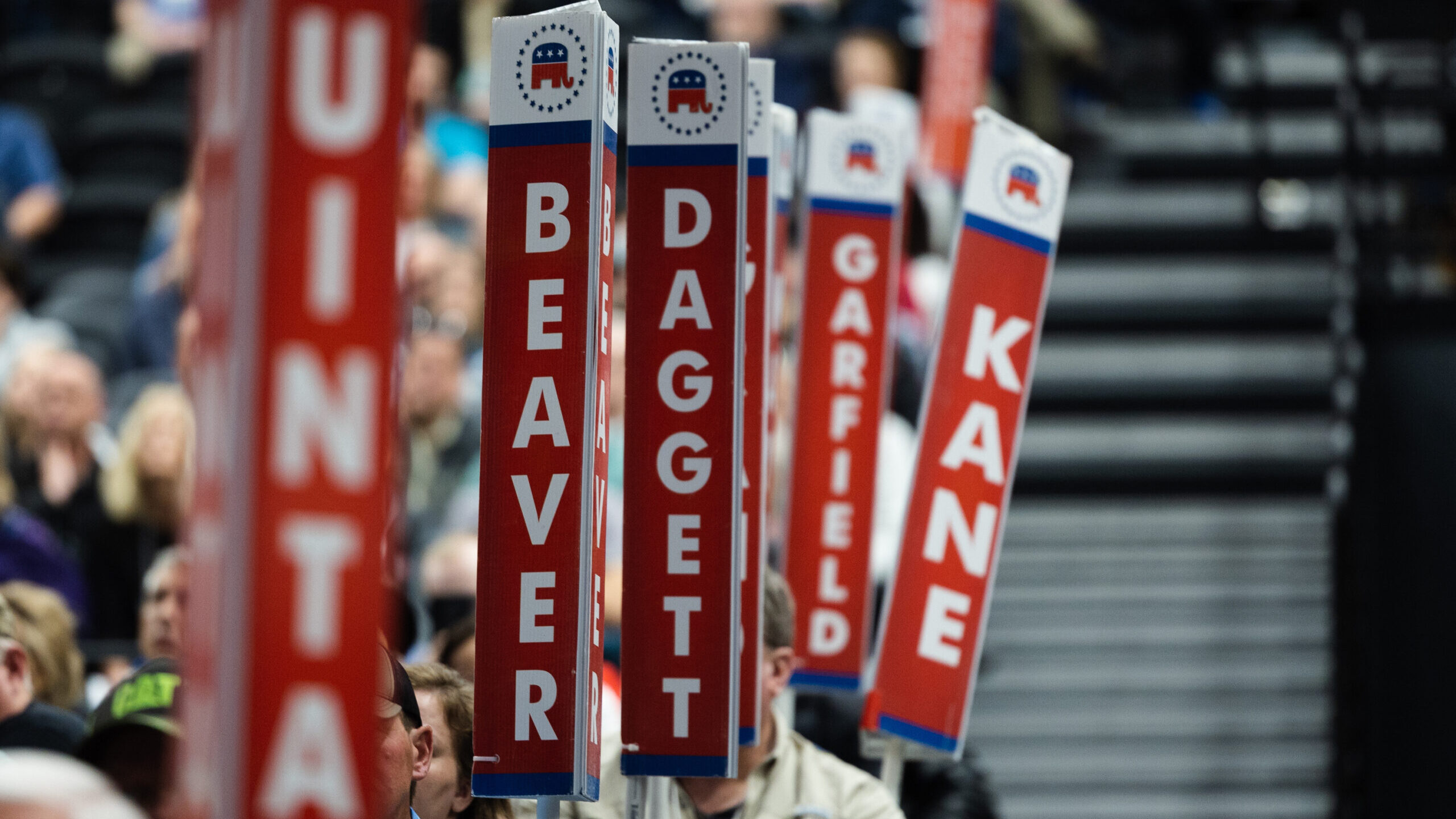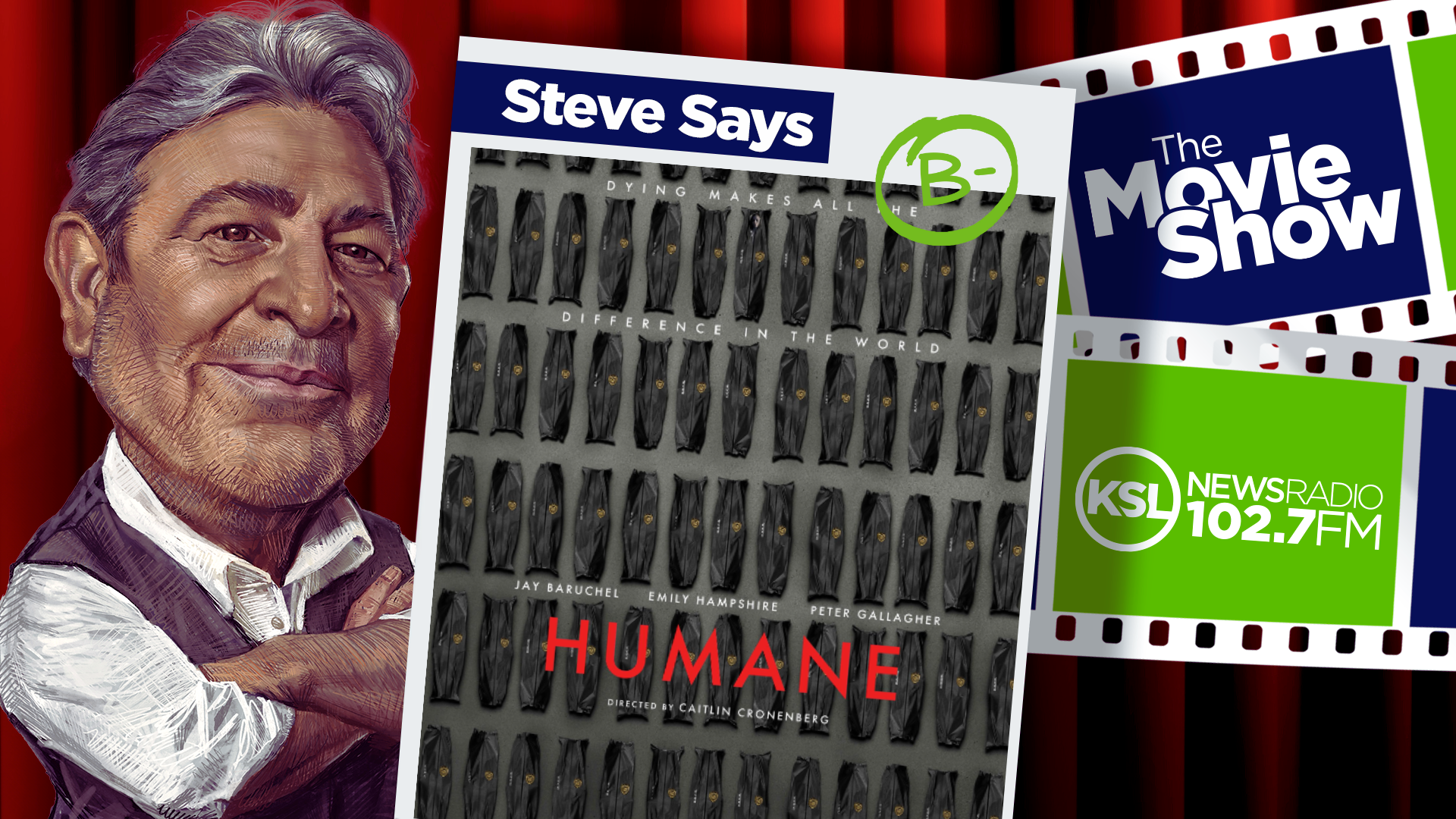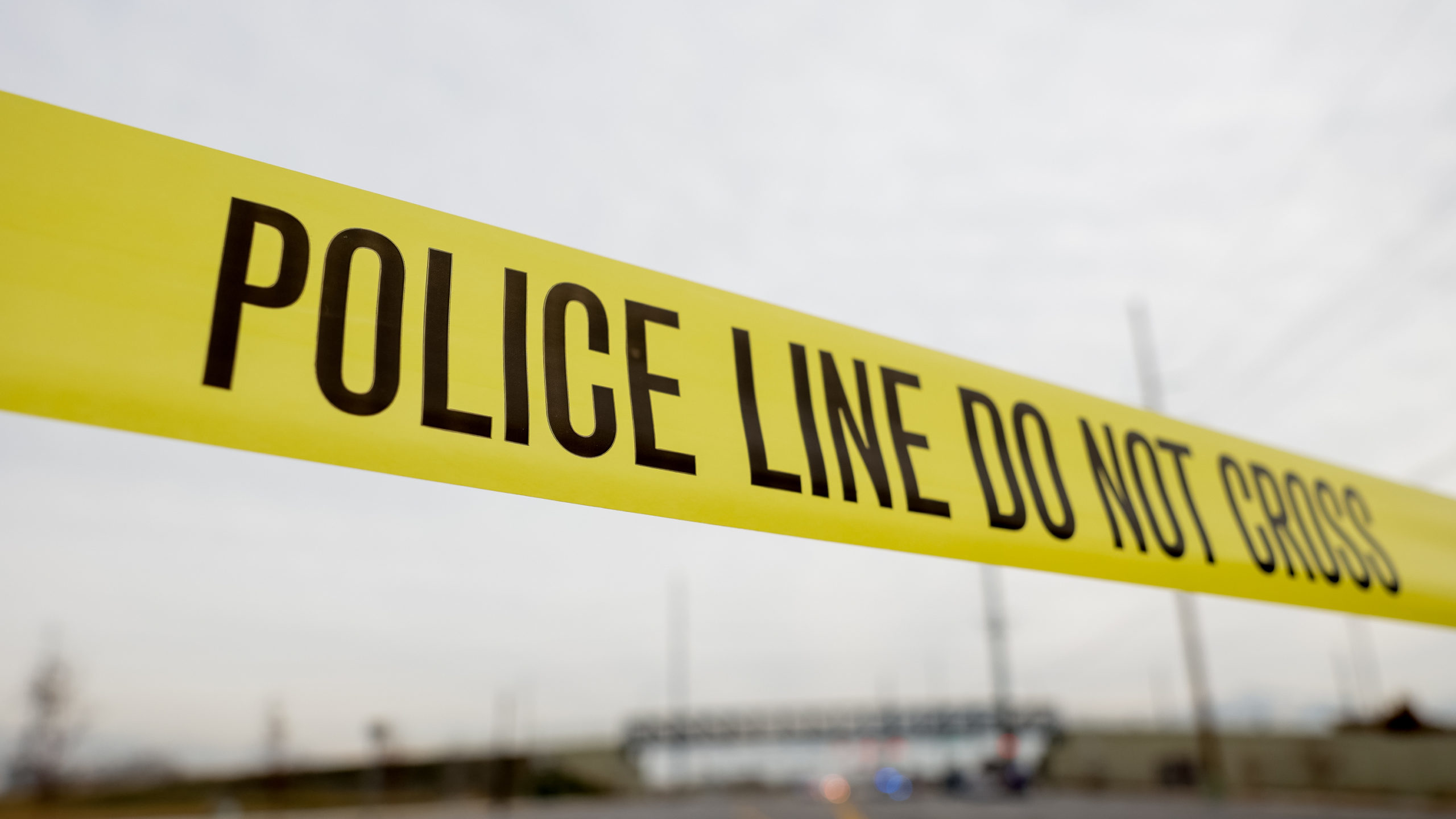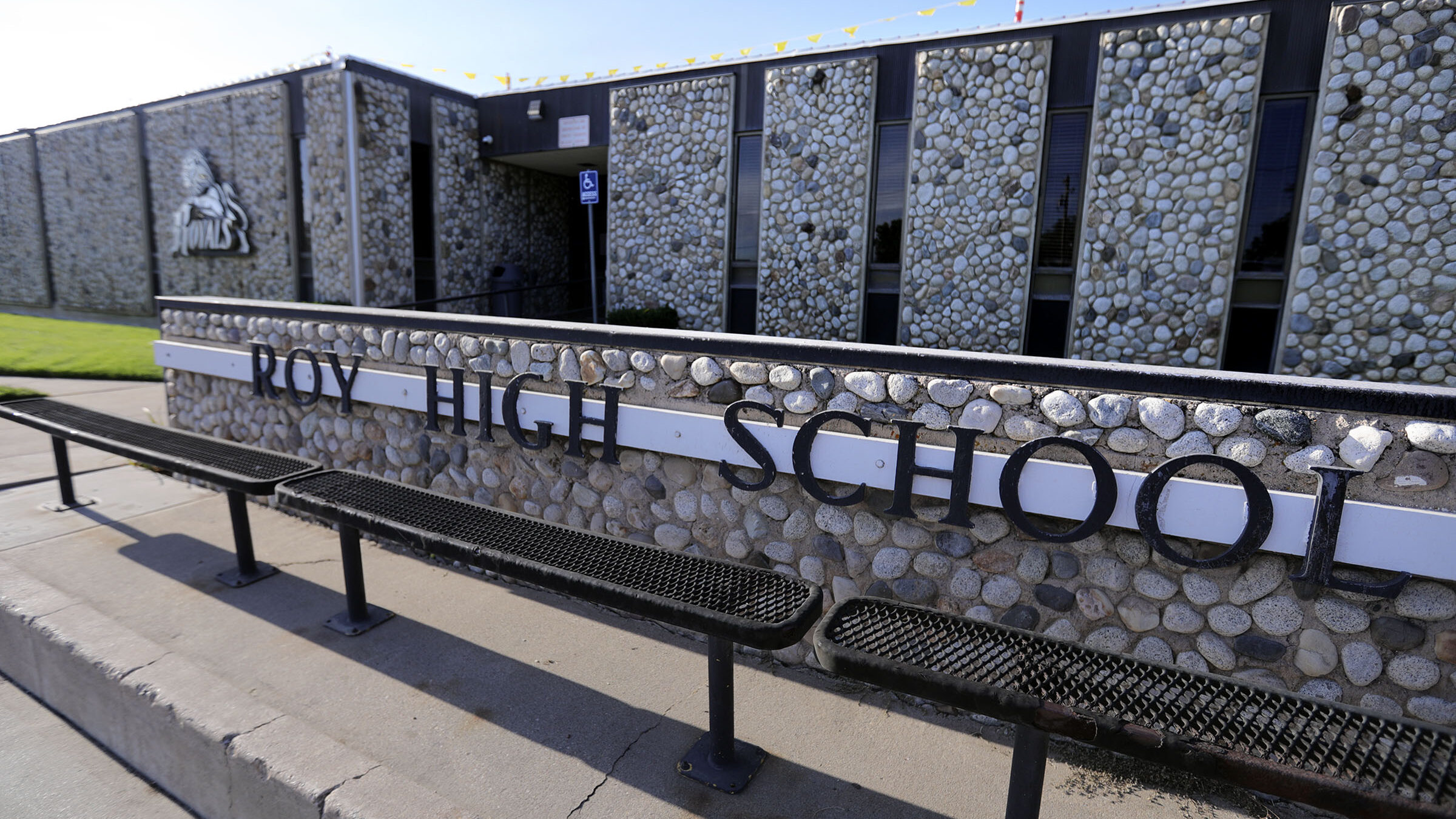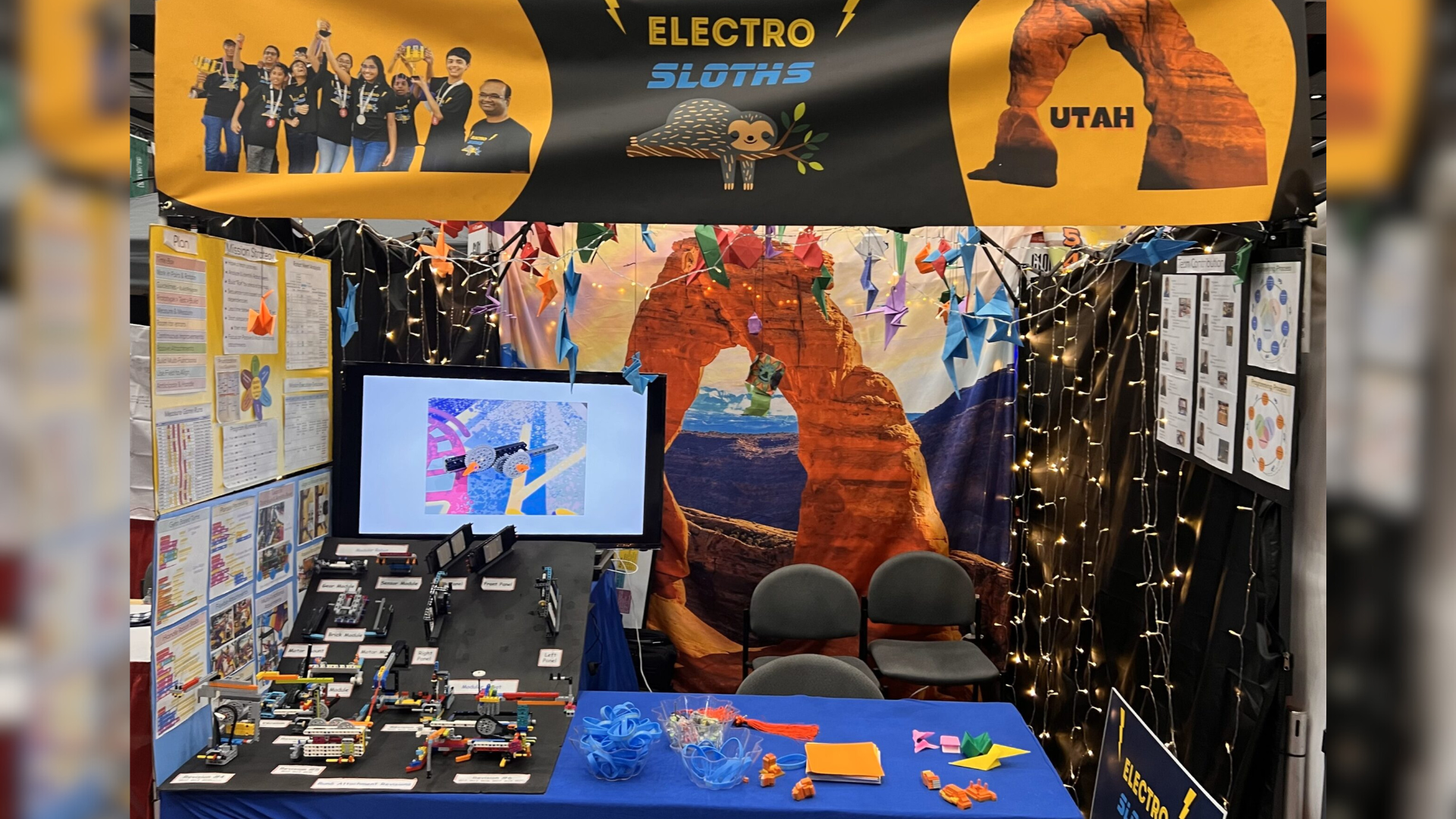Elizabeth Smart offers advice for survivors and those who love them
Apr 30, 2021, 12:16 PM
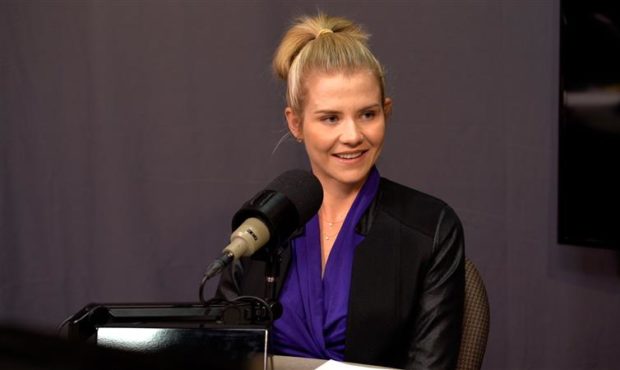
Elizabeth Smart speaks with the hosts of Talking Cold, Amy Donaldson and Sheryl Worsley, at KSL Broadcast House. Photo: Josh Tilton
SALT LAKE CITY — Elizabeth Smart would have preferred a life of anonymity.
But after her kidnapping from her Salt Lake home at age 14 in the middle of the night, followed by nine months of captivity and constant sexual assault, she said returning to ‘normal’ life could not happen.
Smart, who now runs the Elizabeth Smart Foundation while raising children of her own, endured nine months of sexual and emotional abuse at the hands of Brian David Mitchell, who is now serving a federal prison sentence for kidnapping and sexually assaulting Smart. Almost two decades later, Smart discussed her own healing and her advocacy work as a guest on Talking Cold, the companion podcast to COLD.
Elizabeth Smart on being a survivor
“As an adult looking back now, it’s almost laughable to think that nobody would know,” she said of hoping to hide her own sexual assault from intense media scrutiny of her case. “But when I got home, I thought I could hide from the world that I had been raped, that I had been sexually abused, because I was embarrassed, and I was ashamed. And I wanted to hide it. Because it felt dirty. It felt embarrassing. It felt like if people knew what had happened to me that they wouldn’t look at me the same, and that they would think less of me, because I hadn’t protected myself, even though I knew it wasn’t my fault.”
Even though she is one of the “rare victims” who doesn’t feel responsible for what happened to her, she said it’s unfortunate that so much of the discussion still centers on a victim’s behavior and choices and not the reasons sexual assault is so prevalent.
“It’s disgusting, and disappointing, and disturbing to think that we could play so little value on human life that we would call any kind of rape, any kind of sexual assault garden variety, because the difference between rape and murder is that one victim is still breathing,” Smart said responding to the argument of a defense attorney in the Joyce Yost rape case.
No excuse for victim-shaming
She said she endured some questions that felt like shaming from individuals and even the media.
“Something that I dealt with for a long time was when I when I first started speaking, I used to be approached by people from all levels,” she said. “It wasn’t just individuals… it was media. It was it was everywhere. But people would ask me questions like, “Why didn’t you run? Why didn’t you scream? You were brought out into public, why didn’t you do something?’ And for years, I couldn’t understand why I would feel immediately defensive and like I was out to be attacked. And then as I processed it a little bit more I realized that my my brain did not hear the curiosity. What it heard was, ‘You should have Run; you should have screamed; you should have done something more; you didn’t do enough. It’s your own fault that you were kidnapped for nine months, you could have been rescued three months after you were kidnapped, but you weren’t because you didn’t do something. So it’s your fault.’ That’s what I heard. And I have heard so many victims, say, in different words, the same thing.”
Related: Wanda Barzee to be paroled, Elizabeth Smart calls it ‘incomprehensible’
Elizabeth Smart was just 14 when she was kidnapped, and she said all she wanted to do was ‘blend in.’ That became impossible after she was rescued.
“It was pretty shocking, coming back and coming to terms with that and accepting it that I was never going to go back to who I was before I was kidnapped,” she said of how unnerving it was to have strangers approach her as if they knew her. “Because before I was kidnapped, I was pretty quiet. I was pretty happy to be a wallflower. I was pretty happy to blend in. I didn’t need or crave the spotlight.”
Becoming an advocate
She said her father’s decision to become an advocate for survivors and their families eventually led to her own decision to become an advocate.
“My dad, he actually kind of marked the path for me to go into advocacy, I suppose,” she said. “Because I think probably from the first day I was kidnapped, he became an advocate for other children who had been kidnapped for other families. he was the president of the surviving parent Coalition for a long time. He’s been involved in so many different pieces of legislation. And when when a piece of legislation would come up – like the amber alert, for example, he would ask me what I thought, how I felt, did I want to go with him. And initially I would be pretty hesitant about doing things because I wanted to go back to who I was. I wanted my old life back. But as I realized more and more that that just was not going to happen. I started to think well, why not? I should do this.”
Smart now heads a foundation – The Elizabeth Smart Foundation – dedicated to support and education. She offers support and advice for those who have suffered a sexual assault and those trying to help others recover.
Read more: Ed Smart talks after scheduled parole hearing for daughter’s captor
Smart felt compelled to point that out she enjoyed support and attention that many victims do not have. While strangers assaulted her, many people face victimization from someone they love and trust. She encouraged survivors to find support where they need to find it, and rebuild family through friends and loved ones they trust.
Advice for survivors
Smart offered three pieces of advice to survivors.
“The first thing I would want them to know is that it’s not their fault,” she said. “They did not do anything wrong. It wasn’t because of the clothes that they were wearing, or where they were at or what they were doing. It’s not their fault. That’s the first thing I would want them to know.”
She continued, “The second thing I would want them to know is that just because this happened to them, it does not diminish their value whatsoever. They are still worthy, they are worthy to be loved, they are worthy to be happy, to have joy, to have peace in their life — They are worthy to have every good thing that every person wants in life. They are worthy. They still deserve that.”
Lastly, she said she wants survivors to know there are people they can trust to help them heal.
“And the third thing I would want them to know is that there are good people out there,” she said. ” As I mentioned, I have traveled extensively, I have been to so many rape recovery centers, YWCA shelters, advocacy centers that are there. …Nothing is perfect. But there are so many good people out there who still come back day in and day out after hearing horrendous story after horrendous story. And they are willing to be there for for those survivors for those victims. So don’t give up because there are good people out there. And there are people who will believe them and who will support them.”
How to listen
Listen to COLD and Talking Cold for free, no subscription required, on Amazon Music. You can find bonus content, including videos, pictures and case materials at the COLD website.
Free resources and help with sexual abuse are available 24/7 at RAINN.org. You can also call 800-856-HOPE (4673).



